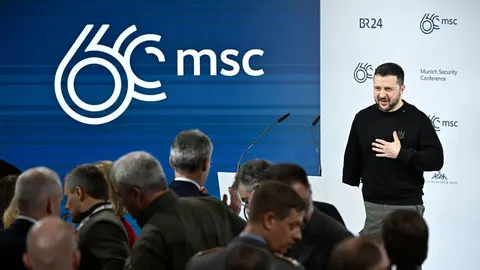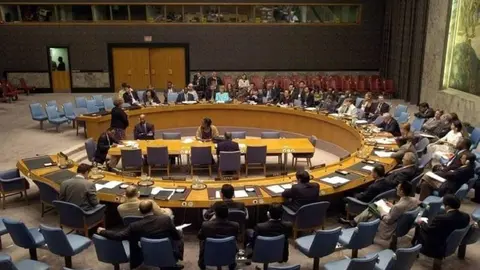Divisions over Gaza and Ukraine mark the G20
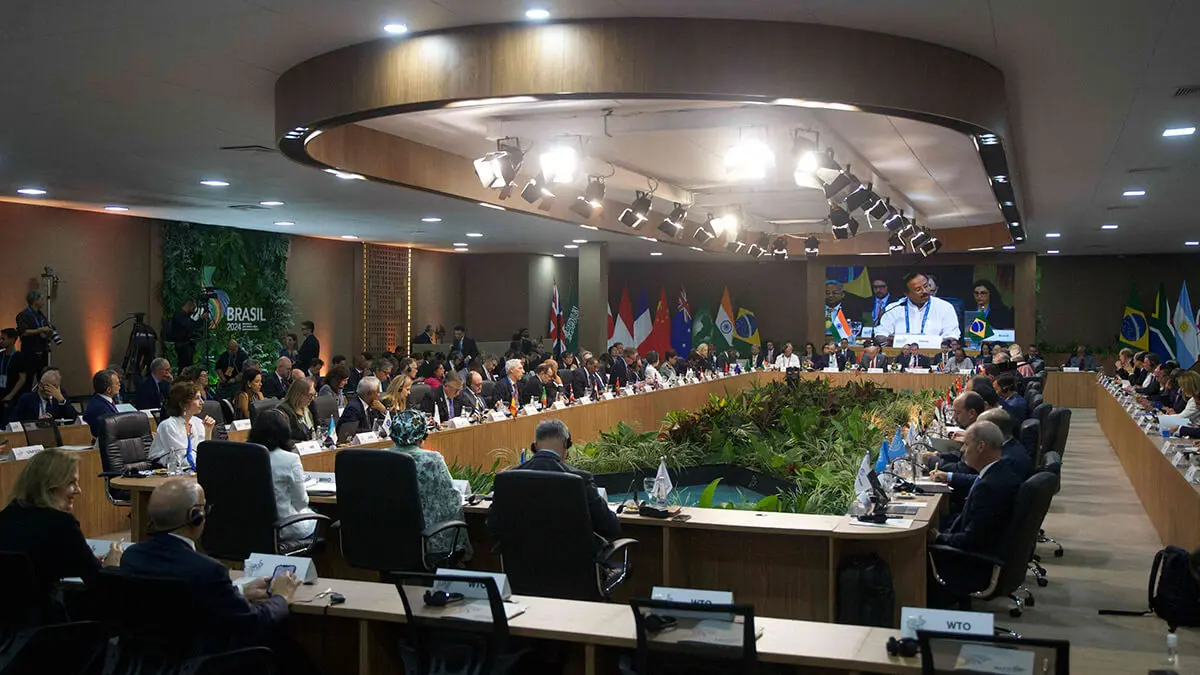
As expected, the wars in Gaza and Ukraine took centre stage on the first day of the G20 summit in Brazil. The event, which brings together the Foreign Ministers of the world's largest economies, was held behind closed doors, with the exception of the opening speech by the head of Brazilian diplomacy, Mauro Vieira.
- Brazil-Israel diplomatic crisis tarnishes Lula's efforts to promote the G20
- Disagreements between Lula and Blinken over Ukraine
- West condemns Russia to Lavrov
- No joint statements
In his speech, Vieira lamented that multilateral institutions "are not adequately equipped to deal with the current challenges", citing as an example "the unacceptable paralysis of the Security Council". "This state of inaction directly implies the loss of innocent lives," he added.
For this reason, Brazil has taken advantage of this occasion to call once again for the reform of multilateral organisations, a point that will be the focus of debates during this day and one of the issues promoted by the American country during its presidency.

Vieira called for a "modern and effective" system of international governance, with rules that are followed by all countries, so that conflicts and differences are resolved "through multilateral dialogue and not by force of arms".
Brazil has long insisted on reforms in international organisations such as the United Nations, the International Monetary Fund and the World Bank, with the aim of giving the Global South a greater voice in these institutions.
"We need to adapt the international system to prevent new conflicts," Brazil's top diplomat for the G20 political negotiations, Mauricio Lyrio. Brazil also wants to use its G20 presidency to push the fight against poverty and climate change.
Brazil-Israel diplomatic crisis tarnishes Lula's efforts to promote the G20
However, the comments by Brazilian officials come in the midst of a major diplomatic crisis between Brazil and Israel over the conflict in Gaza. Recently, Brazilian President Lula Da Silva accused Israel of "genocide" and compared the Israeli military operation in the Palestinian enclave to the Holocaust.
These statements could overshadow any attempt to de-escalate the conflict through the G20, chaired this year by Brazil. "Lula's aspirations to propose peace resolutions on Israel or Ukraine have been dismissed," international relations specialist Igor Lucena tells AFP.
Esta manhã, convoquei o embaixador do Brasil em Israel para Yad Vashem, o local que demonstra mais do que qualquer outro o que os nazistas e Hitler fizeram aos judeus, incluindo a membros da minha própria família.
— ישראל כ”ץ Israel Katz (@Israel_katz) February 19, 2024
A comparação do presidente do Brasil, @LulaOficial, entre a… pic.twitter.com/ylHMJXSXVc
Lula's double standards have also been criticised, as on the one hand he denounces the Israeli operation in Gaza, but on the other he has maintained a more neutral stance on Russia's invasion of Ukraine.
Jerusalem rejected these accusations and named Lula Da Silva persona non grata until he retracts his statements, which have been branded anti-Semitic.
US Secretary of State Antony Blinken also expressed his "disagreement" with Lula's statements during a pre-G20 meeting with the Brazilian president.
Lula recently said Israel is doing to the Palestinians what Hitler did to the Jews.
— Gabby Deutch (@GSDeutch) February 21, 2024
"Obviously we disagree," @StateDeptSpox said yesterday.
But today Blinken met w/ Lula & praised his leadership. Unclear if he brought up Lula's Israel comments. I've asked @StateDept to comment. https://t.co/yIxdrfZAVz
Disagreements between Lula and Blinken over Ukraine
Regarding the wars in Gaza and Ukraine, both agreed on "the need for the creation of a Palestinian state" as a way to solve the Israeli-Palestinian conflict, although they made clear their differences regarding the situation in Ukraine.
While Lula defended a "diplomatic" solution, Blinken stressed that the "conditions" for this do not exist, underlining the United States' firm support for Kiev.
Recebi o Secretário de Estado dos Estados Unidos, Antony Blinken. Conversamos sobre o @g20org, a iniciativa pela melhoria da condição dos trabalhadores que lançamos com o presidente Biden, a proteção do meio ambiente, a transição energética, a ampliação dos laços de investimento… pic.twitter.com/SXwSKaCwPt
— Lula (@LulaOficial) February 21, 2024
They also discussed cooperation "bilaterally, regionally and globally". "It's a very important partnership," Blinken said after the meeting in Brasilia.
Blinken will hold other bilateral meetings on the sidelines of the G20, including a face-to-face meeting with Russian Foreign Minister Sergei Lavrov, who is also attending the summit. Blinken and Lavrov last met in person at a G20 meeting in India last year.
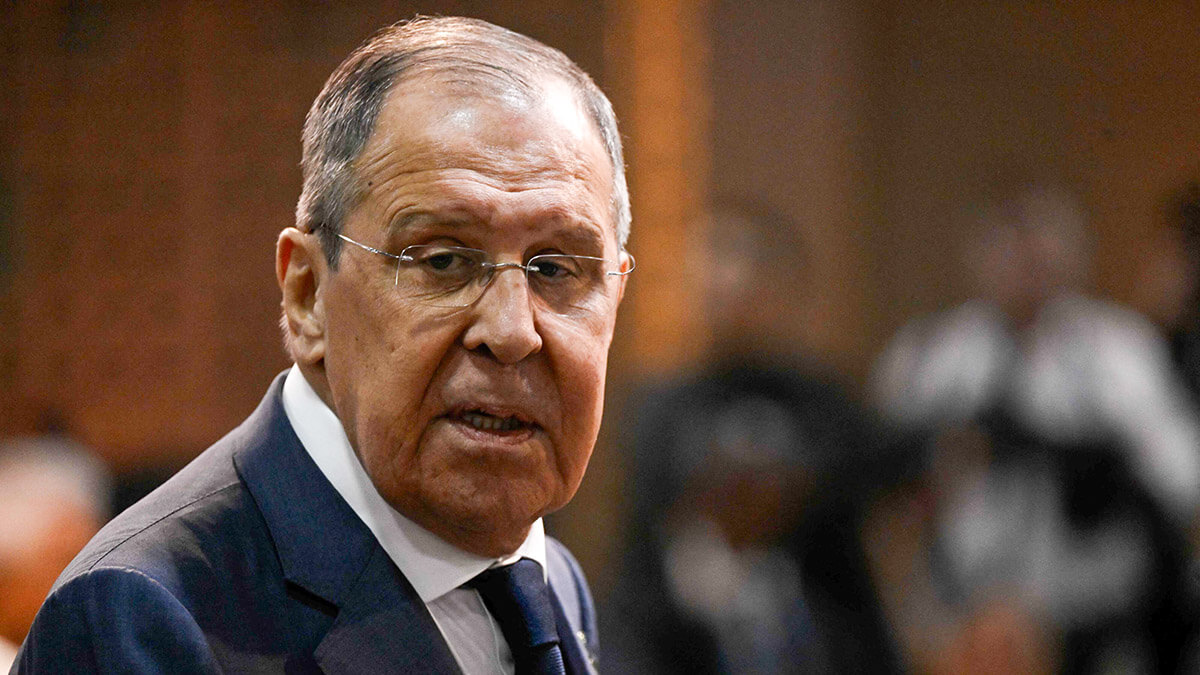
West condemns Russia to Lavrov
Lavrov, who has been meeting several of his Latin American counterparts, listened as Western ministers denounced Russia's invasion of Ukraine during one of the summit meetings.
"Russia must be made to pay for its aggression," British chief diplomat David Cameron stressed in a closed-door session, according to his office. Representatives of other nations including the United States, Australia, Canada, Germany, Italy, France and Norway made similar comments to the Russian minister.
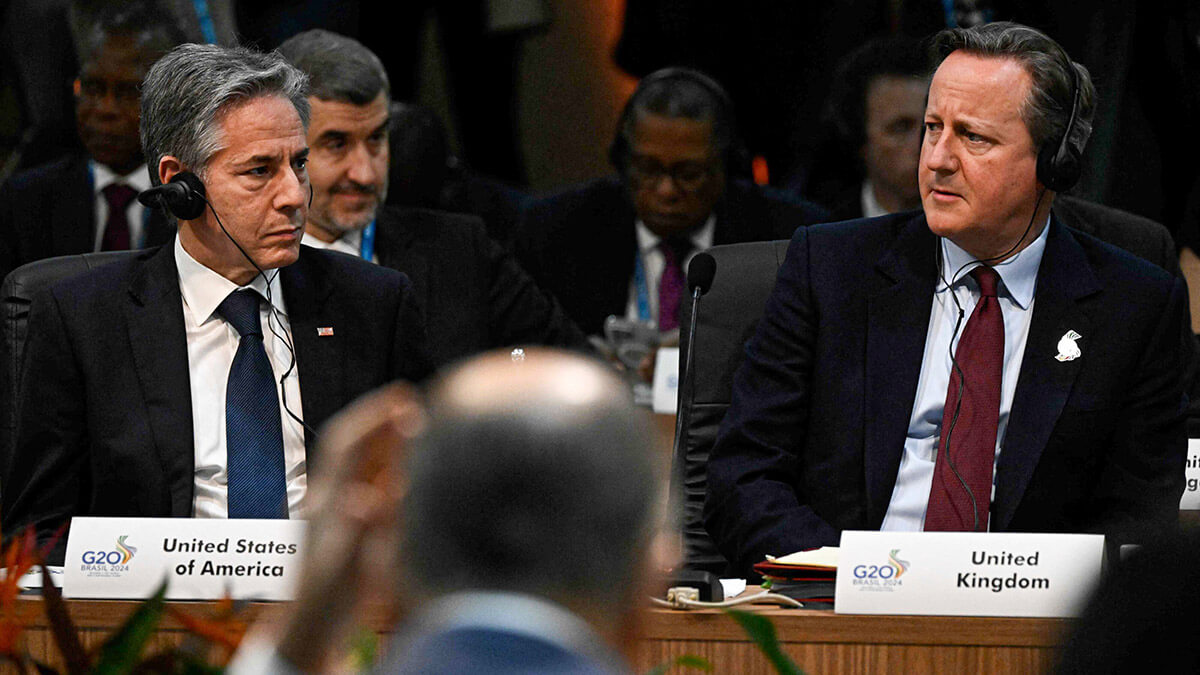
Lavrov, who chose not to speak to journalists, responded "calmly" to Cameron's comments with "an alternative set of facts" about events in Ukraine, as revealed by Norwegian Foreign Minister Espen Barth Eide, Reuters reports.
In addition to Russian attacks on Ukraine, Cameron also recalled and condemned the death of opposition figure Alexei Navalny in a Russian prison last week.
"We have to support Ukraine until it emerges as a free and independent sovereign country without another army on its territory," the Norwegian minister said during the meeting.
Blinken and Lavrov, almost directly across from each other, at the G20 Foreign Ministers meeting in Rio pic.twitter.com/Lbufy4KQwA
— Jennifer Hansler (@jmhansler) February 21, 2024
No joint statements
According to the news agency, Eide explained that at the meeting the ministers agreed on the need for a two-state solution in the Middle East, but there was no consensus on how to achieve it, which highlights the difficulty of reaching major agreements.
Against this backdrop, no joint statements are expected on Gaza or Ukraine, issues that continue to create divisions at the international level.
During this first day of foreign ministers’ meetings in Rio de Janeiro, Brasil’s Foreign Affairs Minister, Mauro Vieira, received foreign ministers from other G20 countries for bilateral meetings. Check it out! #G20Brasil #G20Brazil pic.twitter.com/3rnzNGdzAw
— G20 Brasil (@g20org) February 21, 2024
In fact, aware of the strong disagreements, Brazil has decided that it will no longer be necessary to reach a joint communiqué at every meeting, with the exception of the G20 leaders' summit in Rio in November.

